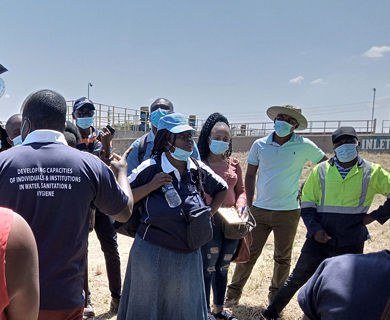Advanced Monitoring, Evaluation and Learning for Humanitarian and Development WASH and Livelihoods Programing

Advanced Monitoring, Evaluation and Learning for Humanitarian and Development WASH and Livelihoods Programing
About the Course:
Access to safe potable water and improved sanitation services scores high on the development agenda. It is well established that improved WASH services is a means for development and an enabler for sustaining the development and well-being of a community. At the same time, community development and well-being are premised on social and economic progression which requires enrichment of livelihoods. In the recent years, however, communities have been exposed to negative development in one way or the other due to persistent economic challenges, poor governance, poor management, pandemics, inequalities in access and control of resources exacerbated by population growth and re-current natural disasters induced by climate change.
As a result, national governments and development partners have been intensifying response programs and projects both in rural and urban communities aimed at mitigating prevailing challenges, build community resilience and contribute towards achieving desired developmental goals. This multi-pronged intervention agenda has resulted in the need for new unprecedented approaches to programming that require matching monitoring, evaluation and learning (MEL) systems aimed at enhancing the on-going processes but also to improve programming for future interventions. In the past, many projects and programs have often battled with weak MEL systems which are not well coordinated and failing to link WASH and Livelihoods in development and humanitarian context.
In view of these challenges, IWSD is offering an advanced Postgraduate diploma in Monitoring, Evaluation and Learning for Humanitarian and Development WASH and Livelihoods Programming which aims to contribute towards learning and accountability within projects, programs and organisations.
This course will set out fundamental principles for an operational M and E system and their differences between contexts, such as humanitarian, developmental, simple and complex programs or organisational setups. Moreover, the course will detail practical steps to ensure that MEL information is effectively used for management decisions, learning and accountability.
| Course Features | |
|---|---|
| Course Durations: | 1 Year |
| Certification: | yes |
| Study Level: | Post Grad Diploma |
| Approach: | Modular Hybrid |
| Calendar: | March Intake |
What you will learn:
On successful completion of the course you will be able to:
Target group:The course draws participants from the development and humanitarian sectors particularly those who are into WASH and/or Livelihoods programing from government institutions, para-government institutions, private sector and civil societies. It is of extreme relevance for those who are responsible for planning, implementing or managing M and E systems within their organisations, programs or projects.

